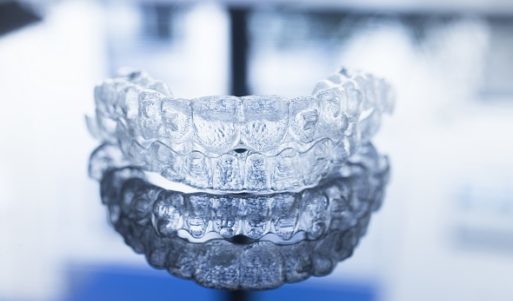 The way your jaw moves depends on a number of things, from the shape of your jawbone to the alignment of your teeth. Two of the most significant factors in your jaw’s movement, however, are the joints that connect your mandible to your skull, known as temporomandibular joints (or TMJs). Moving in tandem, your TMJs glide and pivot as your jaw opens, closes, and moves around as needed.
The way your jaw moves depends on a number of things, from the shape of your jawbone to the alignment of your teeth. Two of the most significant factors in your jaw’s movement, however, are the joints that connect your mandible to your skull, known as temporomandibular joints (or TMJs). Moving in tandem, your TMJs glide and pivot as your jaw opens, closes, and moves around as needed.
When they’re damaged, distressed, inflamed, or otherwise compromised, TMJs can make jaw movement difficult and painful, and the discomfort will grow worse until your bite’s balance is restored. Besides jaw pain, there are a few other signs that could warn you that you might TMJ disorder and should seek a professional opinion from your dentist as soon as possible.
1. Your jaw pops when you open and close it.
Popping and/or clicking noises when you move your jaw is a popular indication of TMJ disorder. If your jaw is uneven, then it will have to shift to compensate when you bite and chew. This shifting can cause your TMJs to pop when you open and close your jaw.
2. You have chronic migraines, but can’t determine why.
Because your TMJs are located close to your trigeminal nerve (the dominant of all of your cranial nerve groups), the discomfort from TMJ disorder can be spread throughout the nerve’s path. Chronic headaches and migraines are common among patients with TMJ disorder, and many may go years enduring them before learning that their jaw joints are to blame.
3. You grind your teeth constantly.
Constant teeth-grinding, or bruxism, can result when your jaw’s joints and muscles are distressed. Conversely, bruxism can also cause TMJ disorder by exhausting your TMJs and jaw muscles with constant friction and pressure. If you catch yourself grinding your teeth constantly, then you may be suffering from TMJ disorder, as well.







